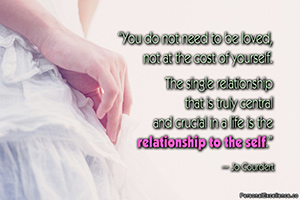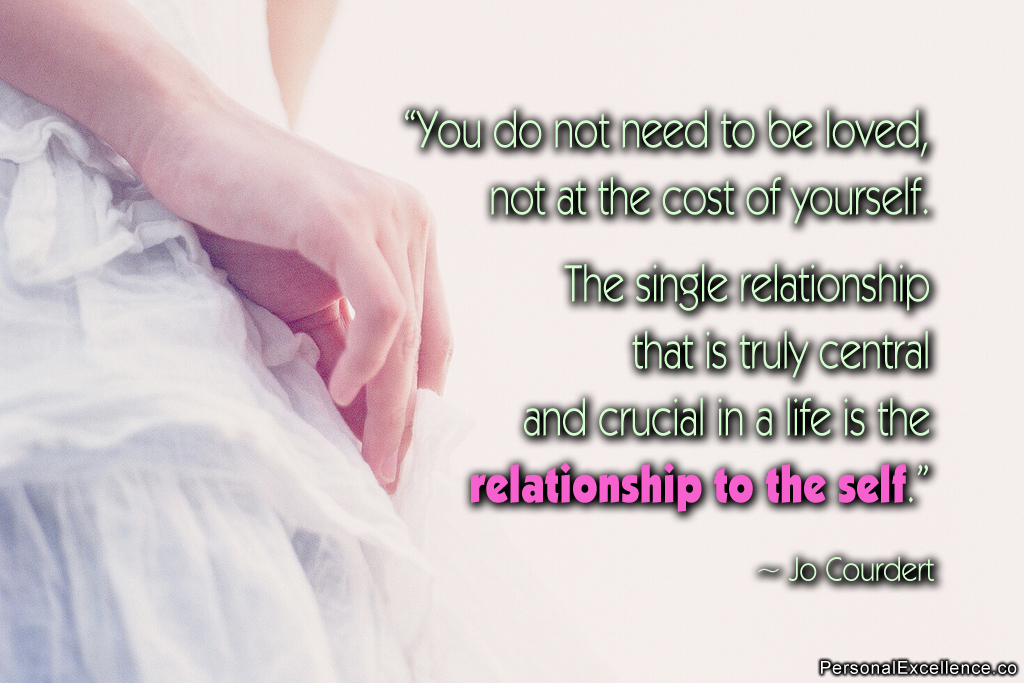This is part 2 of a 3-part series on how to deal with rude people — including co-workers, clients, managers, and customers.
- Part 1: How To Deal With Rude People: Tips #1-4
- Part 2: How To Deal With Rude People: Tips #5-10
- Part 3: How To Deal With Rude People: Tips #11-16
5) Objectify the situation
Is the person being really rude? Or could you be misinterpreting his/her actions? Even if the person is indeed out of the line, could your emotions be making the situation appear worse than it really is?
Sometimes people are rude because that’s how they are. It may be some tough callus they erect to protect themselves. It could be their results-oriented mentality that makes them neglect others’ emotions. It could be their way of exerting their worth to others. It’s who they are as people (Tip #2) rather than anything to do with you.
For some, they could very well be unaware that they are being rude. For example, a few years ago I was at a company Chinese New Year lunch with a team of about 20 people, including the upper management, managers, people from other functions, and the working team. At that time I was on a vegetarian diet. I stood out like a sore thumb as everyone else were meat eaters. Everyone was sharing the meat dishes while I went for the vegetables.
One of my co-workers asked me in front of other colleagues why I was on a vegetarian diet. I told her that it was for non-cruelty reasons, and she quipped sarcastically in front of everyone: “Oh so, plants can’t feel? What if there’s research that proves that plants have feelings too? What are you going to eat then?” Then she burst out into laughter.
I was flabbergasted by her lack of tact. While it was clearly not done in good taste, I didn’t think much about it. When I put this incident into perspective by considering what I do know about her from us working together, it was clear that incident was more of a blind spot than something that happened out of maliciousness.
We have the tendency to aggravate situations, especially when it hurts us. It’s important that we don’t see things from a tinted lens and blow them out of proportion. Be fair in our judgment of others. Here are some ways to do that:
- Vent your anger by brain dumping or talking to a friend. This will help to remove emotional grievances which may cloud your thinking.
- Now, step out of your shoes and analyze the incident as a third party.
- Ask yourself: If someone else was in your place during the incident, would the ‘rude’ person have treated him/her the same way? If it’s a yes, then that’s probably just how the person is.
- Observe how the ‘rude’ person treats others normally. Does he/she treat others the same way too? If it’s a yes, then again, chances are that’s just how he/she is.
- Talk to a friend about it and listen to his/her analysis. It should provide an added perspective.
6) Use a selective response system
There’s no rule that you must respond to rude people. In fact, silence can be a very good response, as attested by reader Jerome:
“Personally, I do not talk much with people who are very rude in their speech and deeds. I always maintain a greater silence when people are rude to me or when I encounter with someone at my office who are not capable to explaining things in a positive way.
Sometimes silence is the most appropriate answer. When we also tries to mach our mood with rude people, we will also fall into his/her situation. It is our duty to let the person cool down and then to start sharing our opinions. I think this would be a better way…”
If it’s a 1-1 conversation, it may be tough/awkward to ignore someone. My recommendation is to help the rude person learn how to communicate with you through behavioral conditioning. When he/she is rude to you, simply ignore the comments. Don’t respond, give lukewarm replies, or just play deaf. On the other hand, when the person treats you with some decency, respond in kind. Be enthusiastic and earnest in helping. If the person is smart, he/she will start to play by ear and treat you properly.
One of my friends back in school was very tactless. She would make jokes at the expense of others. Some people found her rude and overbearing. When I was with her, she would make flippant jokes at my expense too. At first I put up with it, but after a while I got tired and just ignored her whenever she did it. While it was awkward at first, after a while she got the idea and stopped doing it.
7) Understand why the person is rude
If the person is specifically rude to you, there must be some reasons driving that behavior. While it may seem like the person is all out to get you and make your life miserable, there has to be some trigger for that (be it subconscious or conscious). Why is the person acting this way to you? Why is this person being such a jerkface? If you understand why, it will very well help in your future interactions with the person and people like him/her.
For example, when I thought about my situation with T, I gathered that she was treating me poorly possibly because:
- a) I’m a female (she was very polite to my male staff)
- b) I was much younger than her (seniority might be important to her)
- c) I was not important to her (and her goals)
- d) She didn’t respect me (might be due to a) and b) combined)
One of my friends suggested that maybe it’s because I’m younger and more attractive and she saw me as competition (regarding guys). While I think that’s quite amusing, I really do not think that’s the case (it’ll be very unprofessional and silly if it is).
When people are rude to others, it’s usually because they deem the person as “less worthy” or of a “lower importance.” That’s why we get angry with people who are rude to us. No one likes to be seen as not important. If you don’t care how this person treats you, that’s fine. But what if you work with this person closely and you want this behavior to stop? (see next tip)
8 ) …then address those reasons
Since the reasons in Tip #7 are triggers for the rude behavior, addressing them will reverse the rude behavior. Obviously there will be factors you can’t address. For example, in my case I can’t change the fact that I’m female or that I’m younger (not that I’m not interested to change that either)! Outside of that, you can address the other factors. For me, factors c) and d) are a matter of correcting the perception. These can be fixed through Tip #10: Increasing your importance to them.
9) Ask the person how you can help
I do believe rude people are rude because they have a lot of angst and negativity built up inside. Sometimes, the best thing you can do is just ask: “Is there anything I can do to help?” or “What can I do to help you?” You’ll be surprised at how they will stop tensing up and become more open.
Reader Joshua has the same feedback too:
“I also use a lot of questions to the person who is being rude. There are two reasons I do this: 1) Whoever is asking questions is in control of the conversation, and 2) I hope that they will see that what they are doing is not necessary.”
10) Elevate your authority with the person
Rude behavior usually arises because the person doesn’t respect your authority (see Tip #7 above). If the person really thinks that you are good and recognizes your importance, he/she wouldn’t be rude. For example, most cases of rude behavior in companies are towards junior staff and the rank and file because they are seen as having less authority.
Increase your importance and the person will have reason to play nice(r). It doesn’t mean that you should do this for this person, but that you simply want to improve your standing and make life easier for yourself. How to do that:
- Be a valuable asset. Increase the value you offer. Deliver your best performance such that you are an indispensable force. Be consistent in your work. Contribute where you can. Keep finding ways to add more value each time.
- Understand what’s important to the person. What’s important to the person? What does he/she value the most? Focus on them. For example, if the person values effectiveness, being effective will make him/her more appreciative of you. With T, I observe her key value is getting the job done, so rather than be bothered by her lack of tact I focused on that same aim too. This helped our communication flow better.
- Get to know people with authority. In an organization, aligning yourself with people of higher positions helps increase your leverage. If someone is making life difficult for you where you work, it’s good to know more senior people who can help you. Of course I’m not saying to align yourself with them for the sake of this only; you should be genuinely interested in being friends with them, their well-being, and offering value to the relationship.
Continue on to Part 3: How To Deal With Rude People: Tips #11-16
This is part 2 of a 3-part series on how to deal with rude people — including co-workers, clients, managers, and customers.



![Reading Hate Messages [Video]](https://personalexcellence.co/files/video-hate-mail-400x267.jpg)



 I hope you find my content helpful. Join my community of 65,000 readers and get my latest articles delivered to your inbox. Your email is safe and I never send spam.
I hope you find my content helpful. Join my community of 65,000 readers and get my latest articles delivered to your inbox. Your email is safe and I never send spam.
Thanks so much for this great article, I have learn so many things here and this is my first time visit and will be visiting again.
Keep up the great work.
I think that sometimes, it’s not about what you say. It’s about how you say it. They may not have meant any disrespect but the way they conveyed the message may have been hurtful on our part.
Beautiful comments Gia, I so agree.
Those who are rudest are hurting the most inside. If they are hard to those of us on the outside imagine how hard they are to themselves on the inside. Fear, insecurity, feeling threatened, loneliness, vulnerabilty, powerlessness, can all be emotions that fuel rudeness.
I find if I feel sorry for someone and wonder what bad thing has happened to them in their lives I can be far kinder in response and not take their rudeness to heart.
Blessings
Rachel.
Confident Woman Australia
All of this is such excellent information. Thanks for putting it together.
I am curious about one point though – #7. I would like for you to consider a differing opinion.
“When people are rude to others, it’s usually because they deem the person as “less worthy” or of “lower importance”.
Actually what I have found in my dealings with rude people is that they themselves feel ‘less worthy’. I really have seen this with people. And upon confronting the rude person, what I found more times than not, is that they were highly insecure and afraid people would judge them poorly. It kinda fueled their uncontrolled rudeness. Being loving toward them, while being firm about respecting others, many times brought them to a better understanding of themselves and defused their behavior.
They go out into the world feeling inferior, because of their actions, people are put off by them or avoid them, this fuels their belief that they are inferior. So, the rudeness becomes a vicious cycle brought on by their poor coping skills…
Just a thought…
Gia
Hey Gia, you’re right. :) It’s actually inter-related. Our relationships with others is a mirror of our relationship with ourselves. So since rude people see themselves as less worthy, they have a tendency to see others as less worthy too. The second is an effect of the first.
Hi Celes,
Thank you for addressing the very important topic. I just had an experience at work with someone calling and being absolutely over-the-top rude to me, and then being nice to the person who she needed something from. She absolutely dumped a ton of toxic waste on me. I never experienced anything remotely like this, and my reaction was physical; upset stomach and headache, neither of which I ever get. I wrote down everything this woman said to me, verbatim, and submitted it to my superiors. They know that I am usually adept at dealing with difficult people, and they were very surprised at my reaction. Thankfully, they were very sympathetic. I think the advice about silence is very good, and since i did not have a chance to get a word in the conversation, that worked fine. I also took a walk and thought about that person and awful they must feel to let out a stream of toxic energy like that; I tried to feel compassionate for her. It was hard but I kept doing it. The other thing that I wondered is why it would have such a strong impact on me when I get tons of positive feedback all the time. Why were those words so much more powerful? It made me think of the 80/20 principle and to realize that 90% of the time people are very nice and thankful, and that I shouldn’t let 10% of the clients get me down. Also, I always want to be open to constructive criticism. I thought about this and realized that this form of communication was not constructive. Anyway, thank you for writing about this important topic. I thought your tips were great!
When people are rude to me, I choose to believe it’s their problem rather than mine. If it’s important to me to get to the bottom of their rudeness (if I need to work closely with them, for example) then I use questions to try to get to the bottom of their behaviour. I love Joshua’s feedback, that whoever is asking questions is in control of the conversation! If it’s not important to me, then I just let it go. It’s their burden, not mine! I’m looking forward to part three of your series, thanks!
Great Celes – fabulous series of suggestions, thank you. I so agree with the idea of ignoring rather than responding so you don’t reinforce what they say. When we respond in like kind we are fuelling their behaviour. By ignoring we take the power of their put-downs away and in the end they get bored by the lack of response.
May I put your sixth tip on an article on my website with a link back to your website, please? My readers could benefit from reading what you say. I wrote on article on self-esteem and not taking things personally and this fits perfectly with it. I won’t do anything without your permission.
I am glad I found your site! :lol:
Blessings
Rachel.
Confident Woman Australia
Hey Rachel, of course, please go ahead and use it! :) It’d be my absolute pleasure and honor. I encourage everyone to republish my materials as long as a linkback/credit is given where the material is used – https://personalexcellence.co/contact/#copyright.
Loving your comments and look forward to connecting with you more :)
Thanks Celes.
I have put your comment on here: http://www.confident-woman.com.au/women-build-self-esteem/2010/6/20/build-your-self-esteem-dont-take-things-personally.html and linked it back to your blog and written your name and blog title.
It is great to read your ideas we seem to be working in similar areas – aside from my work on Confident Woman I also work as an Emotional Intelligence Coach helping people keep their cool with difficult people. We seem to be on the same wavelength! Fabulous! I found you through google alerts. :-P
Blessings
Rachel.
Wow Celes, thanks so much for the mention. I love that you mentioned journaling. As someone who has maintained a journal for nearly a decade now, it has been one of two things that allow me to stay very calm in situations like these.
On top of journaling, there is nothing like a good session at the gym, or a good Yoga session, to use the energy that gets pent up in a positive way.
Commenting for this post is closed.